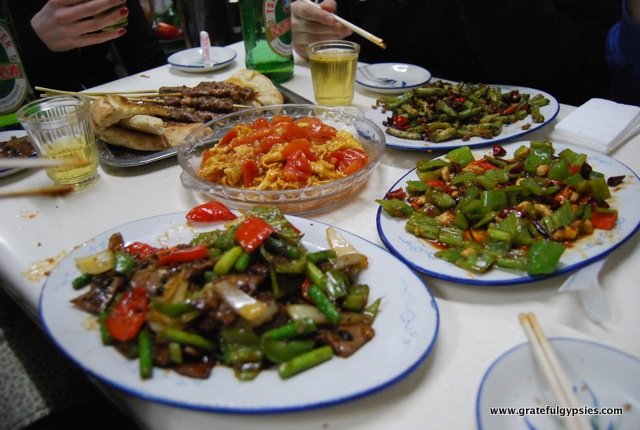Top 20 Chinese Blog Posts of 2020 (Part Two) Posted by sasha on Jan 6, 2021 in Culture, Vocabulary
新年快乐! I hope 2021 is off to a good start for you so far. One thing’s for sure – 2020 set the bar pretty low! While it was a rough year to say the least, we still like to reflect on the positive things, especially when it comes to our little blog. We’re counting down the top 20 Chinese blog posts of 2020. Go back and check out part one if you missed it, and get ready for ten more awesome blog posts from 2020.
The Chinese Dragon Boat Festival
One of the most interesting traditional Chinese holidays is the Dragon Boat Festival (端午节 duān wǔ jié). This post teaches you all about this important festival and its history and traditions. You’ll learn about the poet Qu Yuan (屈原 qū yuán) who the festival honors, the famous sticky rice snack known as zongzi (粽子 zòng zi), and the exciting dragon boat race (龙舟赛 lóng zhōu sài).
How to Use the Chinese Word for Symptom
Due to the COVID-19 pandemic, one word that came up a lot last year was “symptom” (症状 zhèng zhuàng). In this helpful post, Ayana teaches you how to use this word in Chinese. You’ll learn a lot of adjectives to describe your symptoms as well as relevant verbs. She also provides plenty of examples for you to see the vocabulary in action, such as “Symptoms of COVID-19 include fever, cough, and shortness of breath” (COVID-19的症状包括发烧、咳嗽,呼吸急促 COVID-19 de zhèng zhuàng bāo kuò fā shāo, ké sòu, hū xī jí cù).
One app that got a lot of attention in 2020 was TikTok, which is known as Douyin (抖音 dǒu yīn) in China. This video-sharing app took the world by storm as it attracted millions of users. It also got a lot of attention from the White House, which spent much of 2020 talking about banning TikTok in the US. Read all about the drama in this post.
Learning Chinese through Songs
I don’t know about you, but I love using music as a tool for language learning. Ayana introduces one of her favorite songs from Taiwanese singer 童安格 (Angus Tung) in this post. You can listen to the song and read the lyrics, which she analyzes for you so you can better understand it. Jump in the comments below and let us know what your favorite Chinese song is!
Visiting Beijing’s Summer Palace
There are lots of historical places to visit in Beijing. One of my personal favorites is the Summer Palace (颐和园 yí hé yuán) – a sprawling complex with gardens, pagodas, and even a lake. It’s a great place to escape the chaos of the capital city, which the emperor did every summer when it got too hot in the Forbidden City. Get an introduction into the Summer Palace in this post.
5 Chinese Daily Useful Phrases
Learning everyday phrases is a great way to improve your conversational abilities. Ayana teaches you five of them in this detailed post, including one of my favorites – 随便 (suí biàn). It means “casual” or “thoughtless” and is a very useful word when communicating on a day-to-day basis in China.
Qixi Festival: China’s Romantic Holiday
Valentine’s Day has become quite popular among China’s youth, but the country has its own traditional romantic holiday as well. Learn all about the Qixi Festival (七夕节 qī xì jié) in this post, including the very interesting legend behind it. I also added a romantic poem to this post that you can read and listen to.
There are tons of measure words (量词 liàng cí) in Chinese. It’s important to know which measure word to use, and Ayana is here to help in this excellent post. You’ll learn some of the most common measure words as well as the sentence structures you’ll need to properly use them. Don’t be that 老外 who just uses 个 for everything!
My Perfect Day of Chinese Food
It’s no secret that we love talking about Chinese food here. I mean, it is one of the most famous cuisines on the planet after all. In this post, I introduce you to some of my favorite dishes as I craft my perfect day of Chinese food. There’s a jianbing (煎饼 jiān bǐng) for breakfast, dumplings (饺子 jiǎo zi) for lunch, and dinner at a Lanzhou noodle (兰州拉面 lán zhōu lā miàn) restaurant. Warning – you might drool on your keyboard reading this one!
Learning idioms (成语 chéng yǔ) is fun when studying any language, especially Chinese. There are thousands of interesting Chinese idioms, which provide insight into the country’s history and culture. I introduce you to three idioms in this post, including “呆若木鸡” (dāi ruò mù jī), which means “dumb as a wooden rooster.” I even found some fun little cartoon videos on YouTube that you can watch to learn the stories behind them.
Well that about does it for the 20 best blog posts of 2020. As you can see, our readers were not only interested in Chinese vocabulary and improving their grammar, but also wanted to learn about the food, holidays, and famous places. What kind of posts do you want to see in 2021? Leave a comment below and let us know, and we’ll do our best to add it to the list!

Build vocabulary, practice pronunciation, and more with Transparent Language Online. Available anytime, anywhere, on any device.







Leave a comment: